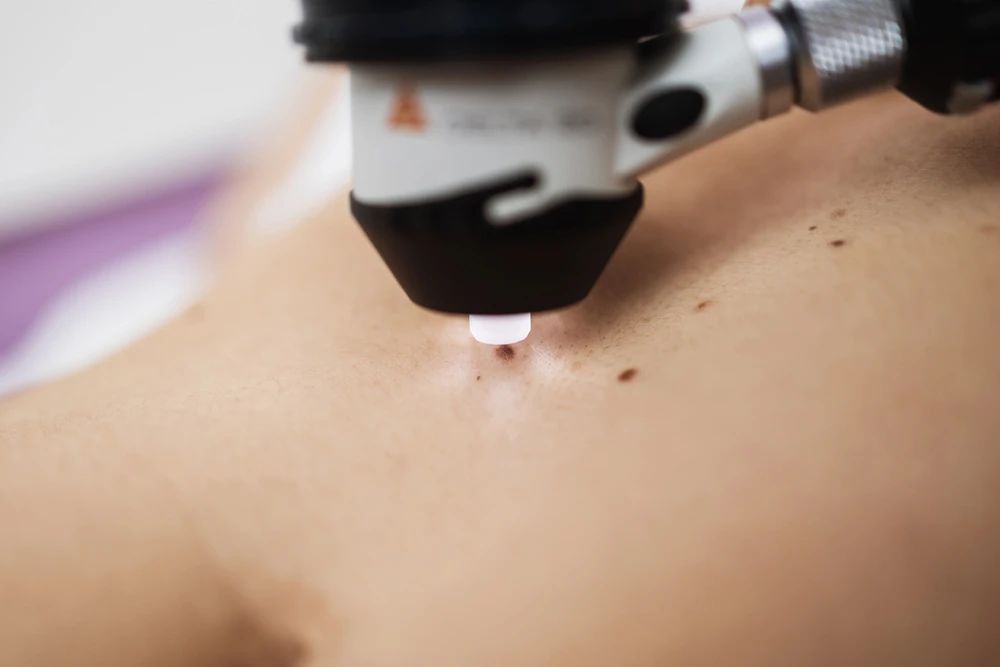Is Your Snoring More Than Just an Annoyance?
2022-03-11

Almost half of the world’s population snores when they are asleep. But how do you tell if it’s just an annoyance, or a cause of concern?
What is snoring?
When the air flow through your mouth and nose becomes obstructed as you sleep, vibrations in the soft tissues create that unmistakable ‘snore’ sound. For some people, snoring only occurs when they are unwell or in a specific sleeping position. For others, snoring occurs every time they are asleep.
Your airways can be obstructed for a number of reasons. These include:
- Issues with the internal structure of your nose and mouth. This may be due to a deviated septum, or nasal polyps, which are small growths inside your nasal passages.
- Nasal allergies, which cause irritation, inflammation, and narrowed airways.
- Sinusitis or sinus infections, which also narrow your airways.
- Being overweight. Fat deposits in the throat can narrow your airways, causing snoring.
- Tonsillitis, where the swelling of your tonsils blocks your airways.
You are also more likely to snore if you…
- smoke or drink alcohol, which can relax your throat and airway muscles too much
- sleep on your back, or on an unsupportive bed or pillow, which can cause your tongue to fall back and obstruct the throat
- take medications, such as muscle relaxants like lorazepam and diazepam
Snoring also becomes more common as you age.
Sleep Apnea
Snoring is usually harmless, but it could also be an indication of sleep apnea. Sleep apnea is the partial or complete obstruction of your upper airways, which causes you to stop breathing, usually for only a few seconds. This results in your body working harder to breathe again, and usually presents itself as a sudden, jerky intake of air when breathing resumes. You may not wake up during an episode of sleep apnea, but it will affect the quality of your sleep.
Snoring is a common symptom of sleep apnea, but you may also experience fatigue due to not sleeping well, headaches, a sore throat and irritability. Often a partner will notice if you stop breathing during the night, even if you aren’t aware of it.
Sleep apnea reduces the quality of your sleep, and as it can put a strain on your body and its organs, it can be linked to heart problems, strokes and diabetes. Visit a doctor if you suspect that you may have sleep apnea.
Home remedies for snoring
If the doctor has verified that your snoring is benign, and not linked to any specific medical concerns, you could try these 8 simple ways to remedy it.
1. Reaching and maintaining a healthy weight
Being overweight not only puts you in a high-risk category for many illnesses, but it can also lead to snoring. Losing weight, if you have a higher than average body mass index (BMI), is an important factor in improving overall health and reducing your likelihood of snoring at night. If you want help with your diet and exercise routine, see your doctor or a dietitian.
2. Get enough sleep, regularly
When you are extremely tired, your body works harder to ensure you get enough rest, which can trigger snoring. Get as much rest as you can every night.
3. Change your sleeping position
Sleeping on your back is linked to snoring, so try sleeping on your side or even your belly. You can also create a barrier of pillows or get a full-length body pillow to prevent yourself from rolling onto your back. An adjustable bed may also help by raising your head a little and offer you a more comfortable, unrestricted position for sleeping.
4. Rinse out your sinuses daily
If you have a cold or sinus infection, nasal rinsing can help to flush out irritants and clear your airways before bed. Try using a nasal rinsing kit and saline water to flush out each nostril over the sink.
5. Keep your house and bedroom clean
Sleeping in a moldy or dusty environment trigger allergy that contributes to your snoring. Keep your house and bedroom clean and regularly change your bedding to prevent dust mites.
6. Drink plenty of water
When you are dehydrated, your mouth and throat produce a thick mucus which could block your airway, causing snoring. Drink a glass of water before bed to help with this.
7. Avoid alcohol or sedatives before bed
Alcohol and sedatives reduce the resting tone of the muscles in the back of your throat, making it more likely you'll snore.
8. Correct structural problems in your nose
Some people are born with, or experience an injury that leads to, a deviated septum. This is the misalignment of the wall that separates both sides of the nose, which restricts airflow. It may cause you to breathe through your mouth when you are sleeping, causing snoring. Surgery may be necessary to correct this condition.
Snoring solutions
If you find that your sleep quality is still very poor, or if your partner finds your relentless snoring unbearable, it might be time to seek medical help. A doctor will not only look into underlying medical issues responsible for your snoring, but also offer additional relief, such as:
- Medication such as nasal sprays, antihistamines and decongestants.
- An oral mandibular device, which fits into your mouth and holds your jaw open at night to allow for an unobstructed air flow.
- Other solutions such as nasal strips may be recommended.
Snoring solution - CPAP
If your snoring is serious, linked to other health conditions, or a symptom of sleep apnea, and it is affecting your quality of life, your doctor may recommend:
A sleep study test (polysomnogram) which detects breathing, oxygenation, sleep cycles, and other variables to rule out sleep apnea (OSA) syndrome.
A CPAP machine, which delivers a constant stream of air via a mask over your nose and mouth, keeping your airways open and allowing you to breathe better during sleep.
Surgery to correct the internal structure of your nose and airways. This could include straightening a deviated septum, removing polyps or other enlarged tissue, removing your tonsils, or even jaw surgery to correct the alignment of your bones.
Should you get help?
The bottom line is that snoring is usually harmless, but it can cause problems with your overall health if you don’t get enough good-quality sleep.
If you’re concerned about your snoring or your sleep habits, consult your doctor.
Article reviewed by Dr. Michaela Baum, ENT Specialist at ParkwayHealth

Copyright: Health Plus an online health and wellness web resource developed by Parkway Singapore
References:
· Ambardekar, N. (2017, July 23) Understanding Snoring - the basics. Retrieved 7/3/2019 from https://www.webmd.com/sleep-disorders/understanding-snoring-basics
· Blahd, W. (2017, July 12) Understanding Snoring - diagnosis and treatment. Retrieved 7/3/2019 from https://www.webmd.com/sleep-disorders/understanding-snoring-treatment#2
· Chang, L. (2008, November 19) Does Snoring Have You Up All Night? Retrieved 7/3/2019 from https://www.webmd.com/women/features/does-snoring-have-you-up-all-night#4
· Chang, L. (2018, July 8) Sleep and Snoring. Retrieved 7/3/2019 from https://www.webmd.com/sleep-disorders/guide/snoring
· Chang, L. (2012, February 16) 7 Easy Snoring Remedies. Retrieved 7/3/2019 from https://www.webmd.com/sleep-disorders/features/easy-snoring-remedies#1
· Ratini, M. (2018, March 4) Obstructive Sleep Apnea. Retrieved 7/3/2019 from https://www.webmd.com/sleep-disorders/guide/understanding-obstructive-sleep-apnea-syndrome#3
· Polysomnography (sleep study) (2018, November 17). Retrieved 11/6/2019 from https://www.mayoclinic.org/tests-procedures/polysomnography/about/pac-20394877





























